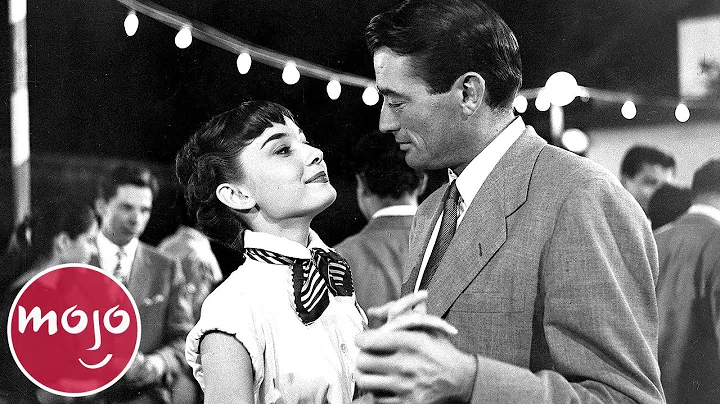In 1977, a young man studying music in the United States and a young man studying textiles in the United Kingdom returned to Hong Kong one after another.
At that time, there was a wave of Cantonese songs in the Hong Kong music scene. With the release of two famous films in the mid-1970s - "The Destiny of Laughter" and "The Ghost Horse", Cantonese songs frequently appeared on television and radio, and were sung by thousands of people.
Two "returnees" who returned to Hong Kong made the same decision almost at the same time:
enter the music scene.
With his excellent musicality and stage performance, young people studying music became the first to become famous.
returned to Hong Kong in the same year, he won two awards in one fell swoop: the champion of the "Hong Kong Yamaha Electronic Keyboard " competition and the third runner-up of the "Hong Kong Popular Song Creation Invitational Competition". He then joined TVB and became a well-known rookie singer "Danny" - — Chen Baiqiang .
As for the young man studying textiles, although he had dreamed of becoming a singer since he was a child, he had repeatedly encountered obstacles. It was not until he won the runner-up in the "Asian Singing Contest" held by Li's TV in Hong Kong that his singing path gradually became clear.
Due to his outstanding performance during the competition, this young man was deeply remembered by the organizers. The "Overseas Chinese Daily" of that year even rated him as "the most promising newcomer of the year." Years later, we have to be impressed by the reporter’s forward-thinking vision.
Because this young man was Leslie Cheung who later dominated the Hong Kong music scene.

▲ Chen Baiqiang and Leslie Cheung. Picture source: Internet
01
In this year when Chen Baiqiang and Leslie Cheung emerged in the Hong Kong music scene, everything has changed. But for many Hong Kong fans, there were also many sad moments between breaking and standing.
The following year, 1978, the reorganized Wenner band still announced its disbandment.
It is worth mentioning that the Winner band, which led the emergence of Hong Kong pop music, disbanded last time because of its name.
Wenner's band was originally called Losers, and the Chinese translation is "Loser". I don't know if this translation is in line with the original intention of the band members, but such a "failed" band name eventually made them announce their separate development and disband the band after they became famous one after another.
Although the band is gone, the hearts of the people are still there.
With his supreme love for music and singing, band member Alan Tam reunited with his old brothers in 1973 and reorganized the "Winner Band" under the name Wynners, a homonym of Winners.
In order to regain the band's past image, they once again broke into the eyes of Hong Kong people with their three major symbols, including lion heads, high heels, and bell-bottom pants, and became a classic memory that will never be erased by a generation.

▲ wenna five tigers . Picture source: Internet
changed from the losing group to the winning group, and the Winner band became an instant hit.
The charm of Wenner Band also infected the subsequent Cantonese pop music scene.
is different from the slow and humorous style of early Cantonese songs set by Gu Jiahui , Xu Guanjie and others. They used youth and fashion as elements to awaken the resonance of Cantonese songs among the young people of Hong Kong at that time.
As the Wenner band became more and more popular, the musical talent Huang Zhan, also known as "Gu Huang" together with Gu Jiahui, also took a fancy to this group of young people.
Huang Zhan was just a small director in the Hong Kong entertainment industry at that time. If you want to break out of the world, you must be new and different. In the 1970s, when Hong Kong's economy had just begun to take off, the most indispensable thing was epoch-making creations.
So, in 1975, Huang Zhan and the Winner Band came together.
That year, director Huang Zhan’s second movie " Café de Coral " was released in Hong Kong. The protagonists were the five members of the Winner band: Alan (Alan Tam), Ah B ( Zhong Zhentao ), Ah You ( Chen You ), Jian Zai ( Peng Jianxin ), Aqiang (Yip Zhiqiang).

▲Poster of the 1975 movie "Caile de Coral".Picture source: Internet
Huang Zhan not only directed the movie "Caile de Coral", but also used his spare energy to compose 14 classic theme songs for the movie. Most of these tracks can be seen starring the "Winner Five". Therefore, when this movie ranked among the top five Hong Kong movies at the box office that year, Huang Zhan and the Winners had already become each other's "boile".

▲Huang Zhan and Wen Na’s "Five Tigers". Picture source: Internet
Although there are many opportunities to become popular, for bands that have traveled as a group, the chances of being broken up also increase.
Soon, the handsome Zhong Zhentao was spotted by Qiong Yao and became a new generation of "Qiong Meinan". He went to Taiwan to play the male and female protagonists of Qiong Yao with Lin Fengjiao .

▲"Small Town Story" starring Zhong Zhentao and Lin Fengjiao. Picture source: Internet
Zhong Zhentao signed a contract for a movie, so he will inevitably miss the band's daily performances and training. Talking about this matter, Alan Tam, who has always disagreed with "breaking up the gang", said: "Everyone has to plan for his own future. You have to walk out and break the road by yourself, not just wait there." So it's tight. Later, Alan Tam also announced that he would "fly solo".
Alan Tam, who chose to pursue a solo career, also made a rule: to get together every five years and still write songs, release albums, and hold concerts together under the name of the Winner Band.
The end of the Wenner Band naturally carried the sadness of the fans of that era, but their vows did not disappoint those who once followed them. Just like the song they sang " remains unchanged for a thousand years ":
Many friendly faces in the past
How has the world changed
A friendly heart is not damaged
The trend is not chaotic
Everyone always advises
It turns out that you and I don't meet each other
pass Greetings are warmer
Sincere and sincere in my heart
This heart has not changed for thousands of years
02
After Winner was disbanded, Xu Guanjie was naturally the most popular.
Xu Guanjie, who was active in the Hong Kong music scene at the same time as Winner, has been out of control in his Cantonese songwriting since establishing his status in the world.
After "Ghost Horse Twin Stars", he created other popular Cantonese pop songs such as "Half a Category", "Genius Idiot Dream" and "Selling the Body".
Huang Zhan once set a standard for Hong Kong pop music: "The pleasantness of the melody and the ease of singing and memorization can be used to identify the quality of the melody. When the listener is exposed to the melody, he feels happy; and after listening to the melody several times, he You can easily memorize and sing. Only in this way can the melody be considered qualified. "
The "playfulness" and "easy to remember" of Xu Guanjie's songs have become the most outstanding characteristics of his singing career.
Although Hui Guanjie's creations are sometimes controversial, no one has ever denied his creative instinct of being good at capturing the psychology of Hong Kong citizens.
In 1976, the Hong Kong Jiashi version of "The Legend of the Condor Heroes" became a hit, and "Who is the Big Hero" written and composed by Huang Zhan became a hit.
Taking advantage of this trend, Xu Guanjie, who has always been good at writing lyrics, directly took Huang Zhan's song and wrote the lyrics for a second time according to the melody of "Who is the Big Hero". As a result, the song "The Legend of Sparrow Fighting Heroes ", which restores the appearance of neighbors playing mahjong, was officially released.
Immediately after Winner bid farewell to the music scene in 1978, on the first day of the Lunar New Year, Xu Guanjie's "God of Wealth to " spread to thousands of households.
People in Guangdong, Hong Kong and Macao have always paid attention to "good intentions". "The God of Wealth" was chosen to be released on the first day of the Lunar New Year. In addition, the song repeatedly appears "The God of Wealth is here, good intentions will be rewarded. The God of Wealth is the God of Wealth, the God of Wealth is here, and you can find money." "Follow the Right Way" is a Cantonese phrase that is both positive and catchy. As soon as the song came out, it took over "the right time, the right place and the right people".
It’s no wonder that later on, even with the highly popular “Congratulations on getting rich”, “The God of Wealth Is Here” remained unconventional and became the most popular New Year’s song in Guangdong, Hong Kong and Macao for decades.
While the songs of several popular "originators" of the Cantonese pop music scene are being sung in the streets, various new talent creation and singing competitions are also blooming in Hong Kong.
Among them, the Top Ten Chinese Golden Songs Award Ceremony was recognized as the highest music ceremony in the Hong Kong music scene at that time.

▲The 1978 Hong Kong Top Ten Chinese Golden Songs Award Ceremony. Picture source: Internet
However, the first singer to win the "Top Ten Chinese Golden Songs" gold medal was not the founder of Cantonese pop music, Xu Guanjie, but Luo Wen, who had a profound foundation in Cantonese opera .
That year, he won the championship in one fell swoop by virtue of his "Xiao Li Fei Dao " of Ruyi Enqiu. He passed five levels and killed six generals.
Luo Wenwen's upright singing style has also opened a new chapter for the Cantonese singing model.
It is rare to have good skills
Love can never be overcome
Cannot be overcome by tenderness and tenderness
Swinging the sword indiscriminately without results
The flowing water keeps cutting
The knot of love cannot be broken
The blade is cold and the passion is not cold.
I feel even sadder in my heart.
It is said that at that time, " Xiao Li's "Flying Knife" album has not yet been released, but the song has already become a hit. Since the records were recorded in the United States, when they arrived in Hong Kong, local record collectors and bosses had already gathered at the airport and snatched them up in a short time. The popularity of
Cantonese hits is evident.
However, at this year's awards ceremony, the one who won the "Grand Slam" of the top ten Chinese golden songs was Zheng Shaoqiu, who starred in "天杀龙记". With the advantage of often singing TV theme songs, he won two Cantonese Opera Gold Awards alone, beating Alan Tam, Teresa Teng and others, becoming the most star-studded artist of the night.
03
This is an era in which the waves behind the Yangtze River push the waves ahead. After the first "Top Ten Chinese Golden Songs" award ceremony ended, a highlight era for Hong Kong pop music has officially arrived.
In 1980, following the release of his second album "No More Tears", Chen Baiqiang took advantage of the situation and released his new album "A Few Minutes of Date".
In that year, all lines of the Hong Kong subway were completed.
"A Few Minutes of Date" suddenly sings out the youthful expression of love among young people, making the major subway stations in Hong Kong an excellent place for young people to compete to meet their significant other.
Meeting her on the subway
It’s like the goddess in my heart enters a dream
Meeting her again on the subway
Looking at each other in silence in the carriage
Meeting her on the subway
Singing and talking in the carriage is the most useful
We meet each other every day in the subway
Happy to send
Compared with previous eras, Hong Kong was already one of the " Asian Tigers" in the 1980s, with rapid economic development. Data show that Hong Kong's economic growth rate exceeded 20% throughout the 1980s, which was almost the same as the mainland's economic growth rate in the 1990s.
The affluence of the citizen class has also deeply affected the Hong Kong music scene, which is part of the spiritual and cultural industry.
After Chen Baiqiang, rising stars such as Leslie Cheung and Anita Mui quickly occupied a place in the Hong Kong music scene. After
won the runner-up in the "Asian Song Contest" in Hong Kong, Leslie Cheung chose to sign with Hong Kong Li TV, the predecessor of Hong Kong Asia Television.
At that time, Lai's TV was one of the only free TV stations in Hong Kong with a wide audience. However, it was always ranked second to TVB and was jokingly called the "mistress" TV station.
Due to the influence of the contract signing platform, Leslie Cheung had many ups and downs along the way.Some people also point out that Leslie Cheung's European and American singing style in the early days of his debut was also a major "stumbling block" to his singing career. Therefore, for a long time, his singing career never improved.
In 1982, Leslie Cheung's singing career took a turn for the better. His contract with Lai's TV has expired, which means he can find a better way out in the increasingly prosperous Hong Kong music scene.
At this time, his friend and teacher, the famous musician Li Xiaotian , was released by TVB. Encouraged by the other party, Leslie Cheung followed the cicada across the other branches.
The biggest advantage of outdated TVB is its large platform and abundant resources. More importantly, here, he signed a contract with Huaxing Records and met the nobleman and manager Chen Shufen .
In 1983, Leslie Cheung released the classic song " The wind continues to blow ". This song was later selected as the theme song of the movie "Across the World".
Let the wind continue to blow
Can’t bear to stay away
Desire in my heart
I hope to stay with you
The wind continues to blow
Can’t bear to stay away
I also have tears in my heart
I don’t want to shed tears looking at you
Just when they first met, Chen Shufen As she recognized the potential of Leslie Cheung's unique voice, she always believed that the potential of the young man in front of her was far from being realized.
With the encouragement of Li Xiaotian and Chen Shufen, Leslie Cheung gradually emerged from the quagmire of music and marched towards the king step by step.
In 1984, with his cover of the Japanese and Korean style "Monica", he won the 7th Top Ten Chinese Golden Melody Awards and the 2nd Top Ten Chinese Golden Melody Awards, establishing his position in the Hong Kong music scene.
At the time when Leslie Cheung was only half-popular, among the winners of the "Top Ten Chinese Golden Songs" in 1983, there was an "unprecedented" female singer. This person is none other than Anita Mui.
Compared with the previous "veterans" who have been immersed in the music scene for many years, Anita Mui is a complete newcomer.
Her last award came from the "Rookie Singing Contest" a year ago. After
won the championship in the "Rookie Singing Contest" in 1982, Anita Mui went full throttle and successively released hit albums such as "Heart Debt " and "Red Anita Mui". As the album has achieved platinum sales many times, Anita Mui's sass and avant-garde have also entered thousands of households along with her singing.
On the other side, Alan Tam, who organized the Winner Band, also achieved good results after his "solo". The year after
Winner disbanded, he released his second album " Love You So Crazy ". The style of music follows his best performance in the Winner era. In that era when martial arts movies were popular, his songs had a unique flavor.
After winning the Taiwan Golden Horse Award for Best Actor in 1981, Alan Tam continued to cultivate his singing career.
In order to open up the situation, he chose to return to Hong Kong, joined PolyGram Records, and successively released his original soundtrack albums "Can't Forget You", " Belated Spring ", etc., and initiated the top ten Chinese golden songs, the highest honor in the Hong Kong music scene. Award, Top Ten Golden Melody Award challenge.
At this point, the "three kings and one queen" situation headed by Alan Tam, Chen Baiqiang, Leslie Cheung, and Anita Mui has officially formed.
▲A group photo of the "Three Kings" of the Hong Kong music scene. Picture source: Internet
After the influx of new blood into the Hong Kong music scene, personalized creation and singing gradually replaced the past development model based on TV series and movies.
Among them, I have to mention a combination: Beyond.
This band, which is translated as "Beyond" in Chinese, is composed of four members, namely Huang Jiaju, Huang Guanzhong, Huang Jiaqiang and Ye Sai Wing. Perhaps due to the "good intentions" of the band's name, they were the most popular band in the Hong Kong music scene in the 1980s.
However, in that era that focused on creating single stars, group debuts were obviously not popular.In addition, most Beyond members have long flowing hair and look a bit like socially delinquent youths. Therefore, many record company managers admit that producing records for Beyond is equivalent to burning money, and they are a group of singers with no future.
What all the agents did not expect was that the era of Beyond was about to begin.
▲Beyond members’ group photo. Picture source: Internet
04
Entering the mid-to-late 1980s, Hong Kong society ushered in a stage of diversified development. The vigorous development of the industrial economy has brought all strata of Hong Kong into a relatively wealthy and prosperous state.
According to a study by The Chinese University of Hong Kong , the number of pop music concerts held in Hung Hom Stadium increased from 18 in 1983 to 129 in 1989. The number of viewers also surged from the initial 150,000 to 1.35 million. The growth rate is unprecedented.
▲Hong Kong street scene in the 1980s. Picture source: Internet
However, such prosperity and diversity also conceals many contradictions, which has a great impact on the sustainable development of the Hong Kong music scene.
In 1985, Chen Baiqiang changed his past image of a spirited young man and tried to adopt a European and American style. He held a concert called "Genesis" in Hung Hom, Hong Kong.
▲1985 Chen Baiqiang’s concert outfit. Picture source: Internet
Unexpectedly, the avant-garde costume design, flashing stage effects, and enchanting masks did not make this big boy who had already established a sunny image in the hearts of Hong Kong people continue to become popular.
On the contrary, fans are not convinced by Chen Baiqiang's "new route".
The media took advantage of the situation to spread rumors that he was infected with AIDS and would die soon. Some fans who didn't know the truth simply bought wreaths and gathered in the mourning hall to express their condolences just waiting for the official announcement of the latest news.
The sudden change in public opinion indirectly caused Chen Baiqiang's subsequent singing career to be severely affected and no longer as prosperous as before.
▲Reports about Chen Baiqiang that year. Picture source: Internet
Chen Baiqiang's "bleakness" and the glory of his friend Leslie Cheung undoubtedly formed a sharp contrast. Since
became one of the "Three Kings", the popularity of "Tan Zhang Zheng Hegemony" has continued to rise. After Leslie Cheung held ten consecutive concerts at the Hong Kong Coliseum, Alan Tam also followed suit and held twenty concerts. The venues were full, causing fans of the two superstars to "fight" outside the venue.
What is even more out of control is that as the two superstars become more and more famous in the music industry, the battle between fans of both sides continues to intensify. Even though Tan and Zhang are very good friends in private, to fans who have long been crazy about the star, these are just "illusions" created by the two to deal with the media.
▲Related reports on "Tan and Zhang Zhenghe". Picture source: Internet
The result of the battle between the two parties eventually led to Tan and Zhang to announce their withdrawal from the music industry award selection and bid farewell to the music industry.
The frequent occurrence of "Three Kings" accidents has not affected Anita Mui's popularity. Although in the late 1980s, rising stars such as Lin Yilian and Priscilla Chan were gaining momentum, Sister Mui still had an extraordinary presence based on the reputation she had accumulated in the early days.
Just because of the sudden end of "Three Kings", she also lost a suitable competitor.
Therefore, after Leslie Cheung, Anita Mui also announced her withdrawal from any award selection.
The decline in the popularity of the "Three Kings and One Queen" ostensibly marks the end of an era, but in fact, what is unexpected is that it was the successive withdrawal of the four people that finally created the "Four Kings" in Hong Kong in the 1990s. Mainly "The King of Heaven", Faye Wong , Hacken Lee , Zhou Huajian and others are competing for the prosperous scene
However, at the turn of the times, a leader is still needed.
From an underground band to a commercial operation, Beyond has experienced difficulties that many singers have never encountered. Despite the ridicule and abuse of all "die-hard fans", Beyond changed his past image of a rebellious young man, cut off his long flowing hair, and sang a love song.
Although these new works may be different from the previous ones, in order to survive, they must learn to keep their heads down. Only when the music industry recognizes them and more fans recognize them can they be qualified to talk about their ideals and embark on an unusual path.
Compared with the changes in Beyond, the superstars of the 1990s are still struggling at this time.
Among the "Four Heavenly Kings", the most difficult one is Jacky Cheung . Although as early as 1985, he successfully entered the "Top Ten Chinese Golden Songs" award ceremony with his song " Love is Gone ", but since then , he repeatedly became popular and gradually became one of the ordinary singers.
And Dawn and Aaron Kwok , the two future superstars, are still "newcomers" who have not released a single album at this time. Aaron Kwok has a "duck voice", which makes singing become "something that is impossible to accomplish in this life" for him. Compared with these two, Andy Lau and are obviously better. At least he has not made a name for himself in the music industry, and he has constant film appointments.
▲ Andy Lau and Jacky Cheung in the movie "Mongkok Carmen". Picture source: Internet
In 1989, when the era was about to open a new chapter, Anita Mui and Priscilla Chan both sang "Sunset Song " by Japanese singer Kondo Masahiko . Different from Anita Mui's version, Priscilla Chan's singing seems to have a stronger sense of farewell. Many years later, people still comment on each other's quality of the two pieces of music because of the passage of time.
It’s just that many people don’t understand that as time passes, what remains are classics.
05
In 1990, with "A Laugh in the Sea", the 42-year-old Xu Guanjie once again "smiled proudly".
It is a pity that by the 1990s, the "founding monster" of Cantonese opera that spanned two eras had neither the ability nor the intention to be the leader.
The performance of the "Three Kings and One Queen" was sluggish, which once caused a "sluggish" situation in the Hong Kong music scene in the early 1990s.
Fortunately, after the Beyond band was baptized in the 1980s, their music style and lyrics have gradually matured, and they have a large number of loyal fans in Guangdong, Hong Kong, Macao and Southeast Asia. This has once again led to the recovery of the Hong Kong music scene.
Following Xu Guanjie, Beyond's "Glory Days" has also arrived.
Today there is only the remaining body
Welcome to the glorious days
Hold onto freedom in the wind and rain
A life of hesitant struggle
Confidence can change the future
Ask who can do it
Although Beyo The wave brought about by nd and others once made the country which had been in the doldrums for a long time The Hong Kong rock band once again reached its peak, but the accident that followed ultimately made their best state remain in the history of Hong Kong pop music forever.
On June 30, 1993, Beyond lead singer Huang Jiaju died unexpectedly. About four months later, Chen Baiqiang also died in a coma.
superstars fell one after another, and for a while, the Hong Kong music scene fell into deep sadness.
As Huang Zhan said, Hong Kong is a small place, but its prosperity and development depends on people's unremitting efforts. This statement is also applicable to music circles.
turned grief into strength. In 1994, at the Hong Kong Top Ten Golden Melody Awards ceremony, there was a rare spectacle of twelve golden songs being released on the same stage. Among them, the first one is "Dream Man".
It is worth mentioning that the singer of "Dream Man" is none other than the "Four Heavenly Kings", Faye Wong.
Unlike her predecessors who were born and raised in Hong Kong, Faye Wong’s memory of Hong Kong was only formed when she was 18 years old. That year, she settled in Hong Kong with her family.
The hustle and bustle of Hong Kong gave young Faye Wong an opportunity to stretch her singing voice. Therefore, after being introduced by a friend, she studied under Dai Sicong and became the "little junior sister" of Anita Mui, Andy Lau and others, and officially entered the Hong Kong music scene.
▲Faye Wong and her mentor Dai Sicong.Picture source: Internet
The road of the music scene was not easy, especially in the 1990s, which was known as the "Warring States Period". Faye Wong wants to make deeply humanistic music, but the faster-paced Hong Kong music scene hopes to bring more laughter to the public in an entertaining way.
Therefore, Faye Wong once went to study in the United States and even declared that she would never return to Hong Kong.
After Chen Baiqiang fell into a coma, his agent Chen Jiaying had no talented singers to train. Therefore, with the help of Chen Jiaying, Faye Wong returned to the Hong Kong music scene again and established her future status with the song "Easily Injured Woman".
When retreating, but the trough sometimes also hides the vitality that is about to awaken.
Since the 1990s, an interesting phenomenon has emerged in the Hong Kong music scene, that is, singers from Hong Kong, Taiwan, and Southeast Asia are switching between each other. And "going out" and "bringing in" have given the "Four Heavenly Kings" the biggest dividend of the times.
▲The "Four Kings" of the Hong Kong music scene in the 1990s. Picture source: Internet
Among them, the one who should be happiest is Aaron Kwok. He is the most junior of the four. At that time, he was criticized for singing like a duck and left Taiwan to find another career. The contracts between Hong Kong and Taiwan that were tied to him have also become extremely confusing.
It was not until the appearance of lyricist and manager Liang Xiaomei that Aaron Kwok's "chaotic life" improved.
After the contract issue was resolved, Aaron Kwok signed with Warner . Liang Xiaomei directly shaped him into a seductive image based on his well-developed body muscles. At this point, Aaron Kwok gradually found the feeling, shooting music videos, appearing in variety shows, and holding concerts with ease, and was directly promoted to the king.
▲Aaron Kwok. Picture source: Internet
As a singer who also enjoys the exchange of local resources, Liming's experience is obviously better than Aaron Kwok.
Although Liming has also been "hidden" by the employer, as a young man, he is the most handsome among the "Four Heavenly Kings". At that time, there was a saying in Hong Kong: "Are you as popular as the dawn of dawn?"
▲Young dawn. Picture source: Internet
Therefore, with her strength and appearance, Liming has gained countless fans. High popularity is a guarantee of record sales. No matter how the management tries to prevent him from becoming popular, his singing voice and film and television image are still spread to thousands of households.
And Jacky Cheung obviously has the style of a powerful singer. Compared with Lai Lai and Aaron Kwok, two young talents with good looks, fans who like Jacky Cheung are naturally attracted by his charming singing voice.
With the accumulation of the 1980s, Jacky Cheung has been promoted to the "god of music" in the 1990s, and has successively produced both fast and slow classics such as "Legend of the Hungry Wolf" and "Love in the Storm". Each one is worth recalling.
Andy Lau often says that he is born in the year of Ox, which represents hard work and harvest. Therefore, he, who has always been accustomed to film, television and singing, became the most commonly seen Hong Kong singer in the 1990s.
Some people say that Hacken Li is the fifth king after the "Four Heavenly Kings", and this is correct. After all, Hacken Lee's "Red Sun" deserves a place in the popular music of the 1990s.
As mentioned in the lyrics of this song, "I go round and round in my life, how can I see clearly?" This state of mind can definitely be understood by those who have struggled in the music industry.
This is also the truest portrayal of the heart of Chow, who only became famous in Hong Kong at the age of 33.
▲ Zhou Huajian. Picture source: Internet
Before debuting in Hong Kong, Zhou Huajian worked as a bar DJ and also signed a contract with a Taiwanese record company. The biggest difference between him and other singers who switched between places is that he is originally from Hong Kong. Whether it's Mandarin or Cantonese, he speaks both languages with ease.
Even Jacky Cheung once said that Stephen Chow will be the "king killer", and he is the successor to the king of Chinese music scene .
06
Whether they are the King or the "King Killer", they must admit that the times are the best soil for creating heroes.
From 1995 to 1996, Hong Kong Commercial Radio launched the "Original Song Movement", which caused strong turmoil in the Hong Kong music scene. The starting point of "Original Songs" is good, which is to encourage all singers and songwriters to use their talents to create more new songs and invigorate the weak music scene.
However, the emergence of original music means that record companies have lost the opportunity to adapt foreign songs for a long time.
Local singers and songwriters are mixed, and adapted singing is a perennial tradition in the Hong Kong music scene. In the face of such reality, the "original song movement" is quite unproductive, which indirectly leads to the decline of Hong Kong pop music.
followed closely. The arrival of 1997 is a year of special significance for both Hong Kong and the mainland.
However, the coming of a financial crisis has dealt a heavy blow to all walks of life in Hong Kong. Fortunately, Andy Lau, one of the "Four Heavenly Kings", played a leading role. This year, he launched the highly popular " Chinese ", which gave a shot in the arm to Hong Kong's pop music scene, which was in decline due to the impact of the economy.
Popular music is a very subtle thing. Just when people thought that the "Four Kings" would use their remaining energy to bring the Hong Kong music scene to a higher peak, they left the music scene one after another and moved to film and television.
Just like back then, when Hong Kong pop music was on the rise, the Times brought in Chen Baiqiang and Leslie Cheung. As the glory leaves, the Hong Kong music scene still pins its hopes on two seed players: Eason Chan and Nicholas Tse .
But as Huang Zhan said, Cantonese is just a dialect. It was only popular in the past because the times made Hong Kong unique and prosperous, which made Cantonese culture active in Chinese societies around the world. As the motherland becomes stronger and stronger, this situation will eventually change.
When we look back at that era, the once glorious Hong Kong voice has left behind many social spirits worth passing on.
Just like "Under the Lion Rock" sung by Luo Wen, it is an eternal era, because there are always people who care about it, so it will always be alive and never grow old:
There is joy in life
It is inevitable that there will always be tears
We are Everyone
met at the foot of the Lion Rock.
Finally, we laughed more than lamented.
Life is inevitably bumpy.
It is difficult to have no worries.
We are in the same boat.
We are in the same boat under the Lion Rock.
4References:
Huang Zhihua: "Forty Years of Cantonese Pop", triplex Bookstore (Hong Kong) Co., Ltd., 1990
Liu Zesheng: "Hong Kong Ancient and Modern", Guangzhou Culture Publishing House, 1988
Huang Zhan: "The Development and Rise and Fall of Cantonese Pop Songs: Research on Hong Kong Popular Music (1949-1997)", PhD thesis of the University of Hong Kong, 2003





















